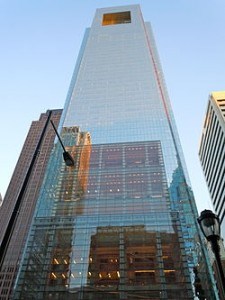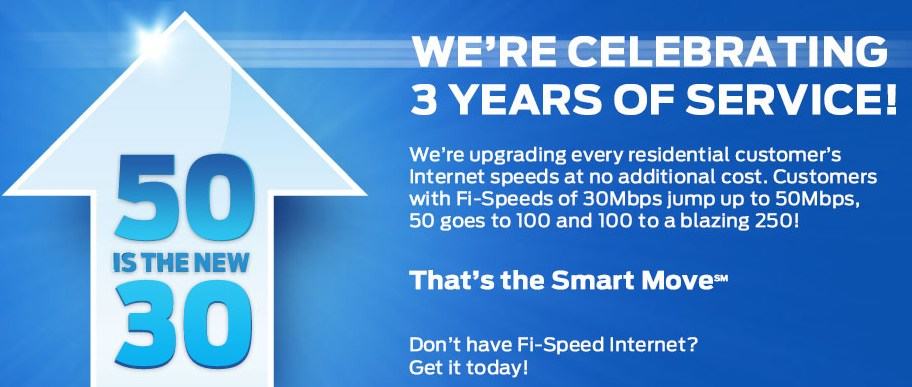 A surprise announcement from the U.S. Supreme Court that it will hear an appeal brought by Comcast Corporation in a class action lawsuit brought on behalf of Philadelphia consumers, despite a pending settlement, may mean the Supreme Court is on the verge of issuing another business-friendly ruling that will make class action cases more difficult to file.
A surprise announcement from the U.S. Supreme Court that it will hear an appeal brought by Comcast Corporation in a class action lawsuit brought on behalf of Philadelphia consumers, despite a pending settlement, may mean the Supreme Court is on the verge of issuing another business-friendly ruling that will make class action cases more difficult to file.
Comcast had reached a tentative settlement in June with lawyers who brought a $875 million class-action lawsuit on behalf of Philadelphia area cable subscribers. The antitrust case, originally filed in 2003, accused Comcast of strategically swapping or acquiring cable systems owned by Marcus Cable, Greater Philadelphia Cablevision, Inc., Lenfest Communications, Inc., AT&T, Adelphia Communications Corp., Time Warner, and Patriot Media in and around Philadelphia for the purpose of creating a super-sized Comcast cable system that could deter competitors from entering the market and allow Comcast to charge higher prices for service.
RCN Telecom Services originally intended to compete for cable customers in the Philadelphia region, but found it could not break into the market because Comcast allegedly hired as many available technicians it could find and tied them down with exclusive contracts. RCN also claimed Comcast targeted potential customers with special, allegedly below-cost deals to retain their business. RCN later filed for bankruptcy.
“Stated bluntly, Comcast and other large cable operators have demonstrated both the inclination and the wherewithal to use their market power to crush broadband competition in their local markets whenever it has the audacity to appear,” RCN alleged.
In 2002, RCN went public with a series of allegations:
Comcast intimidates independent construction and installation contractors. Comcast prevented or tried to prevent about 15 Philadelphia-area contractors from doing business with RCN through “non-compete” clauses, RCN alleged. The company provided specific names of contractors and Comcast personnel in sealed documents.
Those practices dated at least to the late 1990s, when Comcast acquired Suburban Cable, RCN said. Both Suburban and Comcast went “to extraordinary lengths to document ‘violations’ and intimidate contractors who were thought to be in contact with, or working for, RCN,” RCN said.
RCN cited instances of Suburban Cable employees, many of whom later worked for Comcast, allegedly following contractors in their trucks and taking photographs to document contractors seen at an RCN office or work site. These photographs then became “evidence,” RCN said, to support contractors’ termination.
As for predatory pricing, RCN claimed that before its entry into Folcroft in 2000, Comcast allegedly established a sales “swat team” instructed to sign up customers for 18-month contracts in exchange for cheaper cable services.
The plaintiffs’ attorneys want subscribers to receive refunds representing the savings they would have enjoyed had a competitor successfully forced prices down.
 Comcast and the plaintiffs’ counsel reached a tentative settlement in June after both sides learned the lawsuit would proceed to trial this September. But in a surprise announcement, the U.S. Supreme Court suddenly decided to step in and hear an appeal filed by Comcast. Comcast immediately declared the settlement incomplete and has now declined to proceed with it, believing it has a more favorable outcome waiting at the Supreme Court.
Comcast and the plaintiffs’ counsel reached a tentative settlement in June after both sides learned the lawsuit would proceed to trial this September. But in a surprise announcement, the U.S. Supreme Court suddenly decided to step in and hear an appeal filed by Comcast. Comcast immediately declared the settlement incomplete and has now declined to proceed with it, believing it has a more favorable outcome waiting at the Supreme Court.
Kenneth A. Jacobson, a professor at Temple University’s law school, told the Philadelphia Inquirer the Supreme Court does not typically decide to hear a case “during the settlement negotiation and approval process.”
Other Supreme Court watchers suspect the Court’s sudden involvement in the case means it is likely to issue a precedent-setting decision, more likely than not in Comcast’s favor, that will be talked about in law journals for the next decade.

Comcast Center in downtown Philadelphia
The specific point of Comcast’s appeal that interests the Supreme Court has to do with how a class action case certifies damages to the court hearing the case. The Supreme Court agreed to hear the case based on, “whether a district court may certify a class action without resolving whether the plaintiff class has introduced admissible evidence, including expert testimony, to show that the case is susceptible to awarding damages on a class-wide basis.
Currently, courts insist that the burden of proof for damages lies with the plaintiff, but they are not necessarily required to demonstrate the actual individual damages suffered by each member of a proposed class action. Many judges accept the concept of fixed group damages based on a composite of an average proposed class member. That amount gets multiplied by the number of members in the certified class action to arrive at the total requested damages. Typically, both sides negotiate a final settlement, deduct attorney fees and costs, and then class members typically get a change in a company’s policies, coupons good for a future purchase or an actual refund in the mail.
The Supreme Court may find that concept inadequate, and insist on a detailed analysis of actual harm done to each proposed class member — a high and potentially expensive hurdle to cross for many class action cases. Legal analysts suggest the intended effect of such a decision would be to further deter class action lawsuits against companies, because the costs and complexities involved would increasingly not be justified.
In the Comcast case, the cable company wanted the court to dismiss the case, and for some very novel reasons:
- Since Comcast effectively kept competing “overbuilding” cable systems out of Philadelphia, there is no evidence of any theoretical competition benefits such as reduced prices;
- Since no competitor actually got their service up and running in Philadelphia, Comcast argues there was no competition to eliminate;
- RCN, in Comcast’s view, was never actually going to start service in Philadelphia because of their own financial woes;
- Without actual competition in Philadelphia, there is no basis for any expert witness hired by the plaintiff to credibly estimate damages;
- Even if Comcast was engaged in anti-competitive behavior in Delaware County, that cannot be used by plaintiffs to serve as evidence of class-wide impact for the entire multi-county Philadelphia Comcast cluster.
Over the past few years, the Court has ruled in favor of corporations trying to compel less-costly legal avenues — like mandatory arbitration — for consumers who feel harmed by a company’s actions.
 While cable and phone companies make excuses justifying rate increases and usage caps, Chattanooga’s publicly-owned EPB Fiber network has been blowing the windows out with hurricane-fast gigabit broadband, and now they are cutting prices for some while boosting speeds for others.
While cable and phone companies make excuses justifying rate increases and usage caps, Chattanooga’s publicly-owned EPB Fiber network has been blowing the windows out with hurricane-fast gigabit broadband, and now they are cutting prices for some while boosting speeds for others. “This is the second time EPB has upgraded service to customers for free,” says Lisa Gonzalez from Community Broadband Networks. “In 2010, EPB upgraded 15Mbps service to 30Mbps.”
“This is the second time EPB has upgraded service to customers for free,” says Lisa Gonzalez from Community Broadband Networks. “In 2010, EPB upgraded 15Mbps service to 30Mbps.”

 Subscribe
Subscribe






